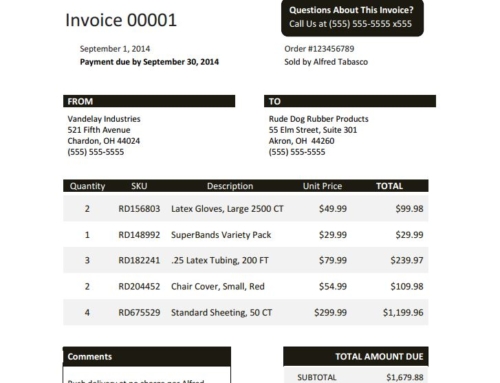When an invoice goes past due, this is a red flag. It’s time to reach out to the customer and find out what is going on. Did they simply forget or are they having internal cash flow issues? Depending on the case, you will want to take a different approach. Sending a friendly reminder will help to jog the memories of those who simply forgot. On the flip side, consistently following up with those that may have bigger issues will help to get them talking and drive action.
SEND A REMINDER EMAIL
It’s always best to start contact with a customer who has gone past due by sending a friendly reminder email. Give your customer the benefit of the doubt assuming that they simply forgot. A friendly reminder, as opposed to a harsh, scolding email, will get the customer to pay quickly if they have the means to do it immediately.
MAKE PAYMENT SIMPLE
Customers want things to be simple and easy. If a payment has to be made by cutting a check, putting it in an envelope, addressing and adding a stamp, that may not occur until later in the day or week when there is ample time. If you make payment simple by providing a link to a payment portal, your customer may be even more likely to take action on that first reminder email.
MAKE A FOLLOW UP PHONE CALL
If a customer has yet to respond after sending them a reminder email to pay on a past due invoice, pick up the phone and call them. They may not have ever actually received or seen the reminder email, so a phone call ensures that they will hear your reminder to pay. In addition, you can ask the customer why they have had trouble paying on time and work something out with them, even if that is a payment plan.
SUSPEND SERVICES
If all of the above has failed and the customer has still not paid after sending emails and making phone calls, then you can suspend services until the customer pays. Whether that is turning off their login or not allowing them to make another purchase, this will surely get the point across to a customer with a past due invoice. Be sure to include this as a clause in your original contract that, if an invoice goes unpaid, you have the right to suspend services.
Dealing with a past due invoice that a customer is not paying on can be stressful. The longer an invoice sits without getting paid, the less likely you will collect on the full amount of the invoice. By taking the above steps to push a customer to pay on a past due invoice, you are more likely to get the job done.




